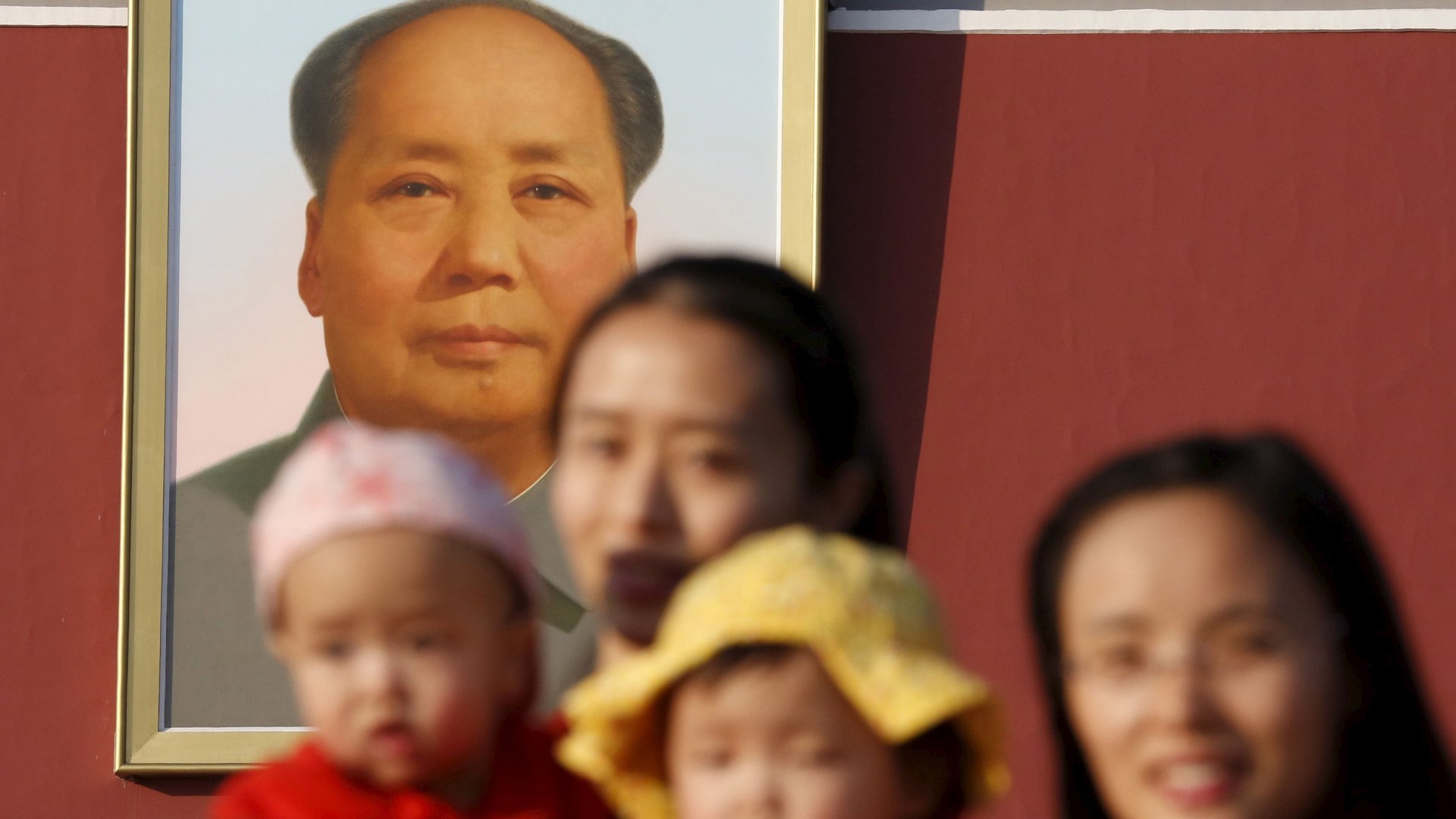Weibo censored a famous novelist who voiced her anger over China’s inhumanity to women
Chinese-American author Geling Yan has long been known for her fiction that depicts the suffering and striving of Chinese women. Now Yan is being censored for her outspokenness on a woman’s fate.


Chinese-American author Geling Yan has long been known for her fiction that depicts the suffering and striving of Chinese women. Now Yan is being censored for her outspokenness on a woman’s fate.
In late January, videos taken by a blogger of a woman chained to a wall in a shack by her neck sparked widespread outrage in China, and raised questions about the circumstances of her marriage and motherhood. Local authorities initially sought to dismiss concerns that the woman might be a victim of human trafficking.
Amid the silence on this issue from most public Chinese figures, Yan published an article on the WeChat account of Survivors’ Poetry, a contemporary Chinese poem magazine, titled “Mother, oh, Mother!” on Feb. 6, expressing her anger over the chained woman, and the gap between the reverence displayed toward the idea of motherhood and the woman’s plight.
“Ever since I heard about this mother in chains, I’ve been angry, sad, restless, and in a trance all day…I realized that maybe it’s time to set aside time for anger, just to let it happen. Anger makes poets, and anger fuels many of my novels,” wrote Yan. “You ask: why are you angry? I answer: Because you are not.”
Different realities for grassroots and elite women
Authorities in the southern city of Xuzhou have faced a huge backlash for their failure to help the woman or investigate her situation, though there were many signs that something was not right. The woman gave birth to eight children despite China’s one-child policy, only lifted in 2016. In its latest statement on Feb. 10, the Xuzhou government reversed itself, and said it had arrested two human traffickers involved in the incident, as well as the woman’s husband. The husband had said the woman is mentally ill, raising questions about whether she consented to the marriage in the first place.
The incident surfaced at a time when urban China has been increasingly mesmerized by the dazzling success of Chinese-American freestyle skier Eileen Gu, who has become the face of the Beijing Winter Olympics for her choice to compete for China instead of the US, leading many commentators to compare the situation of China’s grassroots women, and those from elite classes.
“Gu and the woman in chains with as yet no confirmed name represent the two extremes of what’s possible for Chinese women. It’s a wrenching moment for many Chinese who have become used to basking in nationalist glories,” tweeted Dali Yang, a politics professor at the University of Chicago.
While Yan’s article refrained from criticizing the government, she made a bolder statement during a video chat with US-based Chinese scholar Zhou Xiaozheng last week to talk about the chained woman for Zhou’s political commentary program on YouTube. She repeated Zhou’s remark about the Chinese president Xi Jinping being a “human trafficker,” in reference to the costs for western families to adopt children in China, which Zhou said were unfairly high.
China’s censorship of feminist anger
Shortly after the interview made the rounds online, searches of Yan’s Chinese name led to zero results on China’s largest social media platform Weibo, while her article about the chained mother is also gone from messaging app WeChat. On Chinese search engine Baidu, searches of Yan failed to lead to any results about her comments about either Xi or the misery of the woman in Xuzhou. On Baidu’s online encyclopedia Baidu Baike, the page about Yan has been taken down. For now, Yan’s works and author page can still be found on the Chinese book and film review website Douban.
The partial, yet quick, censorship of Yan comes as Beijing has enhanced its crackdown on feminists, and platforms have taken steps to suppress views that strongly reject traditional female roles, such as motherhood and marriage. These topics have become more sensitive amid China’s concerns about its falling birth and marriage rates. Weibo has also shut down several feminist accounts for “hyping up opposition between different groups.”